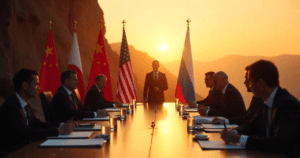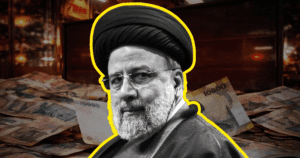In a political landscape where misinformation and half-truths have become tools of governance, the question is no longer whether we should fact-check White House press conferences, but rather how soon and how often.
The recent claims by the Trump administration regarding U.S. government funding for contraceptives in Gaza underscore the necessity of scrutinising statements made from the highest levels of power.
During her first press briefing, White House Press Secretary Karoline Leavitt announced that the administration had halted $50 million in taxpayer dollars earmarked to buy condoms for Gaza. The next day, Donald Trump reiterated a version of the same claim, adding that the funds were being used to provide condoms for Hamas.
It was an astounding revelation—one that would have sparked widespread outrage had it been true.
But there was just one problem: there is no evidence to support the claim.
A simple review of U.S. Agency for International Development (USAID) records reveals that no U.S. funds were allocated to purchasing condoms for Gaza. USAID’s 2023 report showed that it spent $61 million on contraceptives globally, with only $8 million used for condoms—none of which were sent to Gaza. Additionally, between 2016 and 2022, the agency spent $118 million on condoms across 60 countries, yet Gaza was never on the list.
When pressed for clarification, the White House referred to a State Department statement about halting two $50 million aid packages to Gaza via the International Medical Corps (IMC), a humanitarian nonprofit. However, IMC confirmed that none of its USAID funding was used for condom distribution. Instead, the $68 million in USAID funds it has received since October 7, 2023, has been exclusively directed towards running two field hospitals that provide critical medical care to civilians in Gaza.
The issue becomes more convoluted when considering that there is indeed a region called Gaza in Mozambique, which has received contraceptive funding through the Elizabeth Glaser Pediatric AIDS Foundation. Gaza Province, located in the southern part of Mozambique, is an agricultural and rural region with a population of just over one million. It faces significant public health challenges, including high rates of HIV/AIDS, limited access to healthcare, and a lack of family planning resources.
Many international organisations, including USAID and HHS, have worked in Gaza Province to improve reproductive health, reduce maternal and infant mortality, and combat the spread of infectious diseases. U.S. Department of Health and Human Services (HHS) records show that over $83 million has been allocated to reproductive health initiatives in Mozambique’s Inhambane and Gaza provinces since 2021.
Was the Trump administration’s claim an intentional distortion, or was it the result of confusion between two locations with the same name? Given the lack of corroborating evidence and the repeated assertion of the false claim, the answer remains murky.
What is clear, however, is the urgent need for fact-checking. In an era where disinformation is weaponised to shape public opinion and justify policy decisions, unverified claims cannot be accepted at face value—especially when they come from the White House.
When government officials present misleading or outright false narratives, it undermines public trust and distorts discourse on critical issues.
Unfortunately, the necessity of fact-checking presidential statements is not a new phenomenon. From exaggerated crowd sizes at inaugurations to claims of widespread voter fraud, the Trump administration has demonstrated a casual relationship with the truth.
This latest episode serves as yet another reminder that journalists, analysts, and the public must remain vigilant.
In a democracy, an informed citizenry is essential. That requires a commitment to truth—one that should originate from the White House itself.
Until then, it falls on fact-checkers to separate reality from fiction and ensure that the facts prevail over political spin.


















